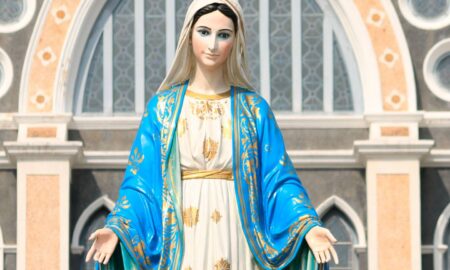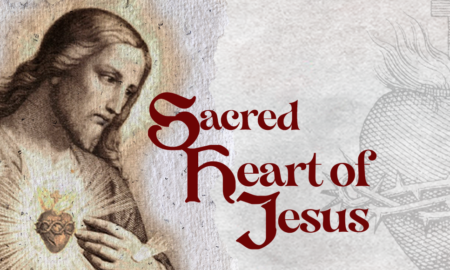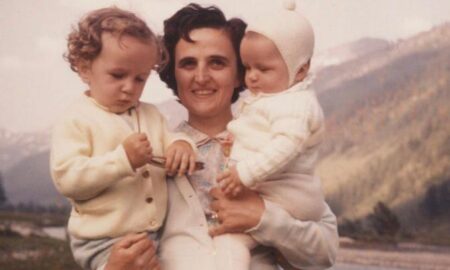Sacraments online? Confession over the phone? Understand why not…
The very nature of the sacraments – What are they?
The sacraments are organized to the sanctification of men, to the building up of the Body of Christ and, finally, to worship God. They are signs, so they also have the function of instructing. They suppose Faith, but more than that, but they also nourish it, fortify it and express it through words and things, which is why they are called sacraments of faith. The sacraments give us the grace to honor God in a proper way and also to practice charity.
Just as Christ was sent by the Father, so did Christ send the Apostles, filled with the Holy Spirit, not only in a way that by preaching the Gospel to every creature they could proclaim that the Son of God, by his death and resurrection, will deliver us from the power of Satan and death and introduce us into the Kingdom of the Father, but also to carry out the work of salvation which they proclaimed through sacrifice and through the sacraments, around which all liturgical life revolves.
Therefore, it is very important that the faithful ones may easily understand the sacrament albeits and receive them as often as possible since they have been instituted to feed Christian life.
Definition
According to the Catechism of the Catholic Church “The sacraments are effective signs of grace, instituted by Christ and entrusted to the Church, through which we are given divine life” (CCE 1131). In other words, they are the means which are perceptible to the our senses by which we are reached by God’s grace.
Which and how many are they?
There are 7 sacraments: Baptism, the Eucharist, Confirmation, Penance, the Anointed of the Sick, the Order and Marriage. They are perceptible to the senses, for they are concrete, we can feel them, to participate in them, as the sacrament of Baptism, which happens with the use of water and baptismal words “I baptize you in the name of the Father, the Son and the Holy Spirit”, the Eucharist, which is concretized through bread and wine and by the words of the priest are transformed into the Body and Blood of Christ.
Its effectiveness does not depend on the minister who delivers it
In every sacrament there is the action of Christ Himself for them to be effective; He is acting directly, so that “its effectiveness does not depend of the holiness of the minister who confers it. However, the fruits will depend on the disposition of those who receive them (cf. CIC 1129).” The sacraments are destined for the sanctification of man, the building up of the Body of Christ and the worship given to God.
“Can I be baptized more than once?”
Some sacraments cannot be repeated as “Baptism, Confirmation and Order, for they imprint on the person, in addition to grace, a mark that is not erased, a sacramental character or “seal” by which the Christian participates in the priesthood of Christ and is part of the Church, by the Holy Spirit, according to different states and functions.
This “seal” remains forever in the Christian as a positive disposition:
1- for grace;
2 – as a promise and guarantee of divine protection;
3 – as a vocation to divine worship and to the service of the Church. That is why these Sacraments can never be repeated.” (CCE §1121)
The Church, the Wife of Christ, is the one who administers the Sacraments
The Catechism of the Catholic Church teaches, with great clarity and authority, what is essential about the Sacraments, being the voice of the Church, which is the Wife of Christ.
We understand that the Sacraments are necessary for salvation (§1129), because “sacramental ‘grace’ is the grace of the Holy Spirit given by Christ and peculiar to every Sacrament. The Spirit heals and transforms those who receive it, conforming them to the Son of God. Thanks to the Holy Spirit who leads her to “full truth” (Jn 16:13), the Church has received little by little this treasure received from Jesus and has precised its “dispensation”, so over the centuries, the Church has been discerning that among her liturgical celebrations there are seven which are, in the proper sense of the word, sacraments instituted by the Lord (§1117), existing therefore to the Church and for the Church in the double sense that “exist through her” (for it is the Sacrament of Christ’s action operating in his interior thanks to the action of the Holy Spirit) and “for her” (because “the Church is made by these Sacraments”). Indeed, they manifest and communicate to men and women, especially in the Eucharist, the mystery of the communion of God love, which is one in three Persons.” (§1118). “Forming with Christ-head as a single mystical person”, the Church acts in the Sacraments as “priestly community”, “organically structured” (LG, 11). (§1119)
Sacraments online? Understand why not…
Is it possible to confess by phone? As I can not travel, is it possible to be godfather accompanying the baptism by skype? What is the possibility of online marriage? These were some of the questions that arose in this period of closed churches due to the pandemic. But the internet can serve many things, but not to administer sacraments, which need matter, form and minister.
“If we take the Sacraments, in general, the seven Sacraments as they are established by the Church, they have three essential things: the first one is the matter, the second one is the form and the third is the minister and the intention of the minister. And what does that mean?
First, matter. Matter is the tangible, concrete symbol used in the Sacrament. So an example: in Baptism. What’s the matter in Baptism? The water, the light and the oil are the matter. In the Eucharist, it is bread and wine; in Confession there is blessing; in Marriage, the marriage blessing, the consent, the covenant more properly saying.
So the matter is this sensitive perspective, we call it, the Sacrament. Why sensitive? Because you can touch, you can see, you have material contact, a sensitive contact, that you can feel, that’s the matter. So every Sacrament has it. And with that you already imagine a little like this: the virtuality of this matter is not possible to happen.
SOURCE : https://www.vaticannews.va/pt/igreja/news/2020- 05/sacramentos-online-pandemia-coronavirus.html
In the life of a member of Merciful Gaze
“From the devotion to the Sacred Heart of Jesus may spring to the member of the Community, a deep love and desire to experience the sacraments. Understand and experience your liturgy deeply according to church norms and experience the sources of salvation contained in every stage of your life.” (Directory of the Merciful Gaze Community, no. 47).









